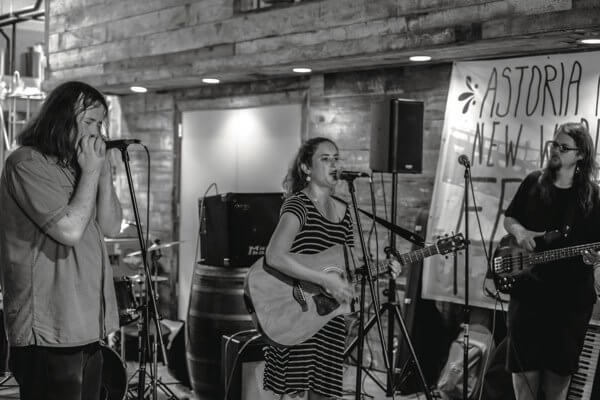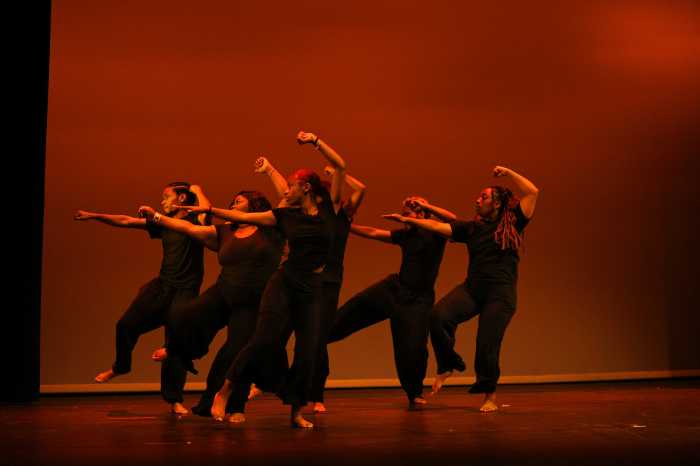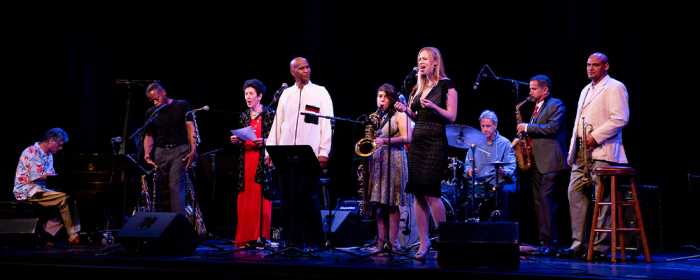By Tammy Scileppi
Before the Greenwich Village folk scene evolved into folk-rock, Bob Dylan announced: “I’m speaking for all of us. I’m the spokesman for a generation.”
It was back in those bygone Bohemian Sixties that a socially and spiritually conscious music revolution was taking place in America. And the Village was where everything hip happened.
Artists, musicians and poets hanging out in smoky late-night coffee houses, folk clubs, and basement bars. MacDougal Street was hopping. Many soon to be famous artists flocked to the Gaslight Café and played tunes or waxed poetic at open mics. And the original Cafe Wha? (still a popular music venue), was where Dylan made his New York debut.
gathered around the fountain in Washington Square park – the true epicenter of the folk scene – were other young musicians, whose sound would eventually influence bands like the Byrds, and Crosby, Stills, & Nash, who created songs that cool cats everywhere were “digging.”
It has been said that the folk-rock movement was ignited in 1965, when Dylan surprised his festival audience with an electric guitar. Before long, famous singers like Judy Collins, Joan Baez, and Joni Mitchell, along with legendary groups like The Turtles, Simon & Garfunkel, and the Mamas and the Papas, would follow his cue well into the ‘70s.
Keeping the folk-rock aesthetic alive and relevant today are Mumford and Sons, the Lumineers, and others.
And then there’s a rising Astoria-based folk-rock band, Coyote Cinema, led by poet and singer-songwriter Elise Levitt.
At times, this indie group seems to be channeling the storytelling tradition inherent in old-school folk music, with a vibe that evokes shades of Bohemian ballads. But when you hear those exciting acoustic guitar riffs, everything changes.
And while Levitt’s tunes reflect her own personal view on life and civilization, it’s surprising to learn that her poetry and music will always be inspired by her day job as a behavioral therapist for preschool aged kids with autism.
“This work informs, infuriates, and enlightens every aspect of my life. My music is no different,” she says.
Beyond that, the songstress insists that she’s not a political poet, like Dylan.
“I’m not a political human. I’m a free human and my songs are about what that means and how hard it is to feel and understand your freedom in a politicized society. I’m not social in the way that I touch upon a particular issue …. though some songs do touch on the imprisonment of daily living,” Levitt notes.
“I have a song called ‘Stop Watch,’ about working with students to try to normalize their behaviors, and I am confronted with my own normalization. ‘Desert Song’ and ‘Tropic of Subway’ have to do with what it’s like to live in an environment that is not made for self-reliant and cooperative survival. And they are also personal songs.”
A native of Woodmere, L.I., Levitt spent her young adulthood crafting stanzas on napkins and “tossing out prose like free samples.” In 2015, she met her significant other, poet and spoken word artist Ben Absurdo (a Southern California native), while playing Astoria’s open mic scene. They formed Coyote Cinema with Absurdo on bass guitar, Astorian Keith Malonis on drums, and Brooklyn musician Kyle Rogers on mandolin, the following year.
“For a while, she gave her words away to bar napkins (some of which I secretly nabbed off tables before we dated),” says Absurdo, who adopted that unusual moniker as a way of paying tribute to a band he once created, called DiscoAbsurdo.
Levitt, who writes her own guitar music, says most of her poems are ephemeral now.
“They just turn right into songs. I found out I can do that and now I can’t stop. There are poems everywhere, on napkins, post-its, envelopes. I have yet to formally publish any of them.”
The Bohemian-looking singer has played several venues in Queens, including Let Love Inn (in Astoria), where her band opened for singer-songwriter Virginia Marcs’ at her recent record release party.
“My first show was a solo set I did for the Venus Envy Festival (all-female music fest in Astoria, run by Nelly Dubarry of the band Toy Animals), hosted by Irish Whiskey Bar,” Levitt says. Since then she had her first show with drums and bass at The Shillelagh Tavern (also in that nabe), and had the privilege of playing solo at Shillelagh for another Venus Envy show. She also performed at a DIY show in Astoria Park.
Besides the solo sets, Coyote Cinema has played as a full band at various Astoria venues and at New York City hot spots, like the Sidewalk Café in the East Village.
You can experience their sound when they play a stripped down set this Sunday, Dec. 3 at Sekend Sun (a laid-back cocktail bar on a bustling Astoria block just steps from the N/Q station), with Absurdo on acoustic guitar, Rogers on mandolin and harmonica, and Levitt doing vocals (while playing acoustic guitar).
She will be playing a solo set on Friday, Dec. 8 – once again with Marcs – at Terra Firma in Brooklyn. The show’s theme is female singer-songwriters.
An upcoming show on Friday, Feb. 9, at The Wolfhound in Astoria, will feature Coyote Cinema, as well as Absurdo’s and Rogers’ band, Ruderals. This will be the first time they deliberately blur the lines (slightly) between the two groups.
“Since these two bands share so many members, that show will give me and Ben an opportunity to combine some of our words and musical styles. Ben and I share a lot, and one of the things we share most is a certain disdain for traditional or straightforward leadership,” says Levitt, who also shares an Astoria pad with her favorite band member.
So, what makes Coyote Cinema so special? “For me, I think it comes from the fact that words form the inspiration for the songs and breathe through the music and almost never the other way around. It’s about the poem of it,” Levitt said.
For a creative like her, it was always poetry first. “Words were my way out and my way in. I studied poetry; reading and crafting words since I was in the fifth grade. I fell in love with the sounds of words and the way they could mean everything and nothing. Of all the writing forms, poetry is an art form for line-steppers and crackers of rulers and breakers of spines,” she says.
When the budding bard was older, an ex-boyfriend leant her a guitar. “I learned a bunch of Bob Dylan covers and basically played that exclusively for a while. A lot of sad stuff happened after that, so much that I started writing songs to make jokes of it. Then I moved to Astoria and met Ben. The End.”
Levitt pointed out that unlike her L.I. hometown, Astoria’s music scene is much livelier and filled with kind, creative musicians and poets, artists and photographers “who support and need each other and come out to watch each other, and walk each other home, and play a little longer with you at rehearsal if you’re having a bad day and need some extra time. How lucky to have landed here,” she says.
When asked whether his girlfriend ever channels Bob Dylan, Absurdo recalls the first time he saw Levitt. She was onstage singing, and he whispered to a friend, “It’s Bob Dylan via Peppermint Patty.”
“It’s interesting because she clearly takes some cues from Dylan, but they’re more stylistic than content-related,” he says. “Most of our songs are informed by this wish to be wild, a wish to live beyond the captivity of civilized society. But I think that’s pretty different from the ‘political’ in Bob Dylan’s work.”




































